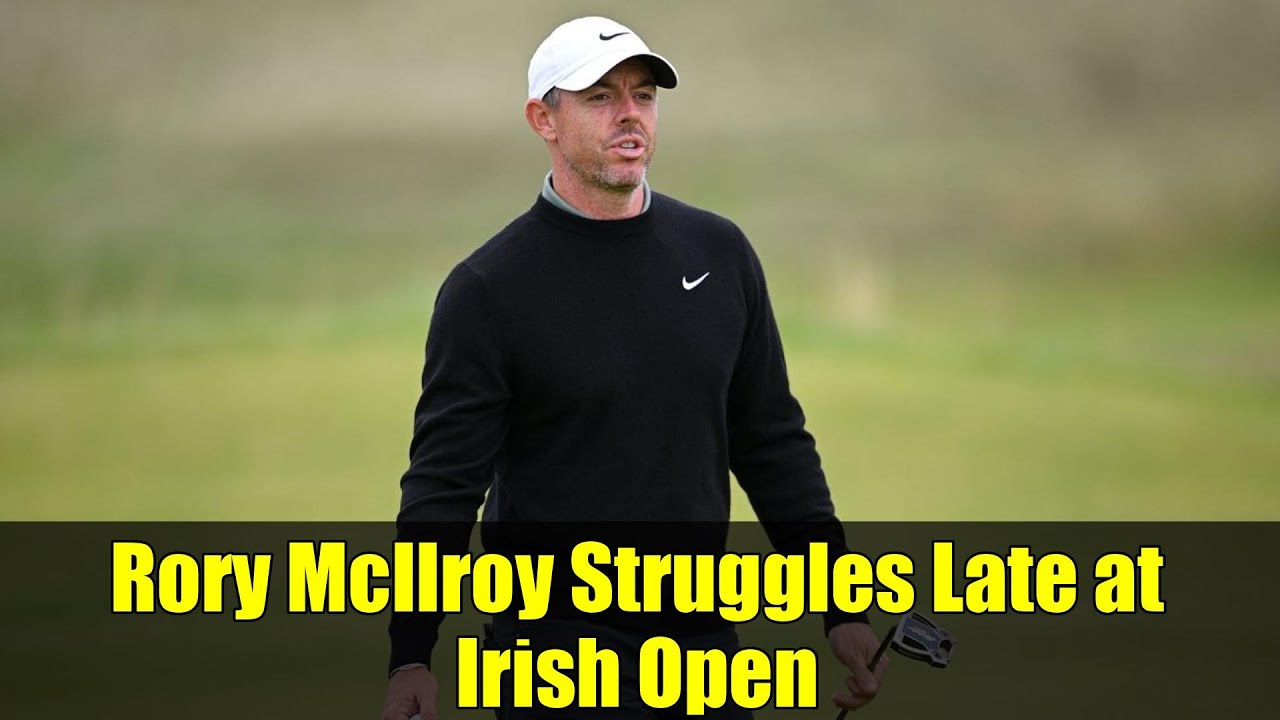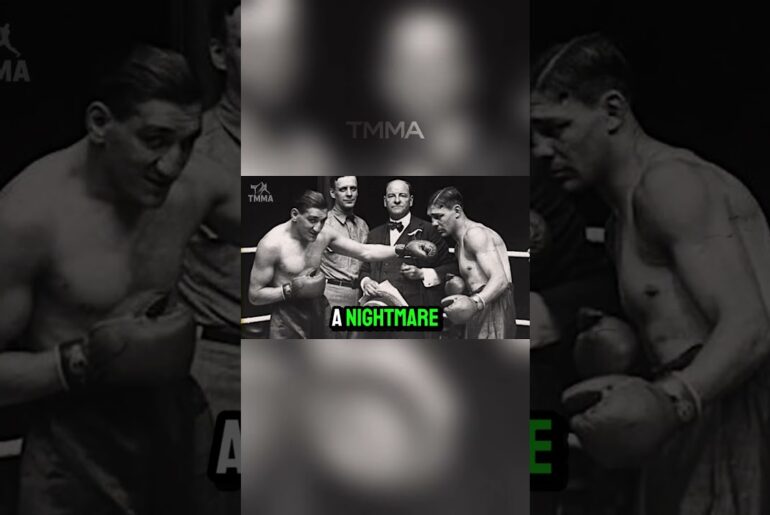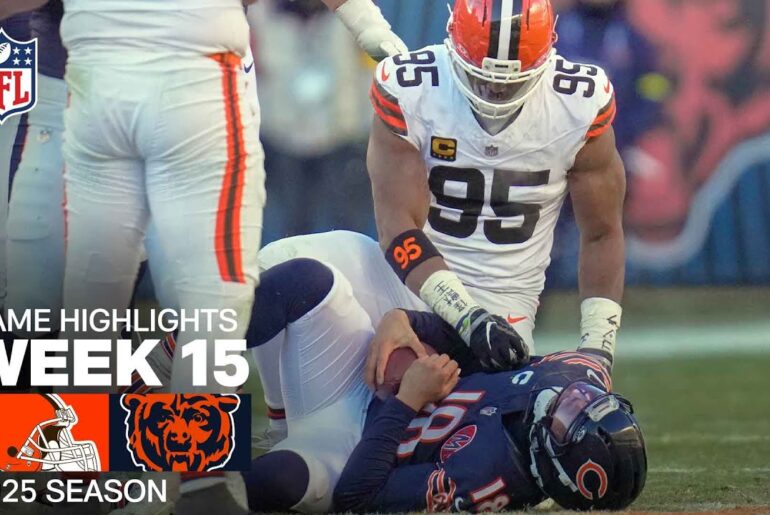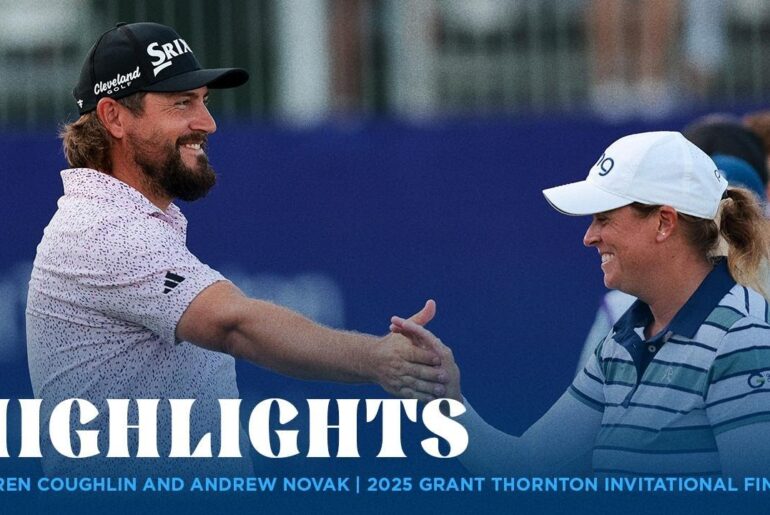Rory McIlroy opened the Irish Open with a 1-under 71 after bogeying two of his last three holes at The K Club. The world No. 2 started strong but ran into late trouble—just weeks before the Ryder Cup at Bethpage Black, where he’s expected to lead Europe. This video breaks down Rory’s round, key birdies and bogeys, what his performance means ahead of the Ryder Cup, and who leads the field after Day 1. Plus, a look at Shane Lowry’s solid 69 in front of his home crowd and the competitive leaderboard led by Nacho Elvira, Thorbjørn Olesen, and Romain Langasque.
Key moments, analysis, and reaction. Was Rory’s scoring a concern or just a blip? Stay tuned for more Irish Open coverage and Ryder Cup build-up!
Here’s the brutal truth about superstar golf that most fans refuse to acknowledge. Even the world’s second best player can completely crumble when it matters most. Rory Mroyy’s opening round at the Irish Open perfectly illustrates this harsh reality. The Northern Irish sensation, who commanded the largest crowds at the Kclub on Thursday, seemed destined for a spectacular homecoming performance. But here’s where it gets controversial. His final three holes tell a story that raises serious questions about mental toughness at the highest level. Let me paint you the picture of what actually unfolded in Strafen, Ireland. Mroy burst out of the gates like a man possessed, firing four birdies across his opening nine holes after teeing off at the tent. The galleries were electric, probably already envisioning their hero lifting the trophy on home soil. The momentum was building towards something special. Then came the collapse that nobody wants to talk about. Those final three holes transformed what should have been a commanding position into a mediocre one under 71. Two devastating bogeies on holes seven and eight. Both caused by missing greens and failing to execute the fundamental short game recoveries that separate champions from also rans. For a player of Mroyy’s caliber, these aren’t just mistakes. They’re mental lapses that could prove costly. But here’s what makes this story even more intriguing. Mroy actually walked away feeling positive about his performance. Game feels pretty good, he declared afterward, suggesting the score didn’t reflect his true play quality. Just a matter of being more efficient with the scoring. This raises a fascinating question. Is this the mindset of a champion who knows how to bounce back or dangerous complacency from someone who should be demanding perfection? The timing couldn’t be more critical. With the RDER Cup at Beth Paige Black looming just weeks away, Europe is counting on Mroy to be their cornerstone player once again. Every shot, every round, every mental mistake gets magnified when you’re carrying an entire continent’s expectations on your shoulders. And this is the part most people miss. The leaderboard tells a story that should concern Mroy supporters. While he was struggling to maintain composure, three relatively unknown players, Nacho Alvivera, Thorbian Olison, and Roma Langaskque seized control with impressive six under 66 rounds. They now sit five full shots ahead of the world number two. A gap that speaks volumes about consistency versus star power. The supporting cast only adds to the intrigue. Burned Whisberger, Daniel Brown, and Adrien Sadier are lurking just one shot behind the leaders at five under, while Ireland’s Shane Lowry provided the perfect contrast to Mroyy’s finish. Lowry, also a Ryder Cup team member, delivered exactly what home crowds wanted to see. Three birdies over his final six holes for a solid 69. This performance gap between the two Irish Rder Cup representatives raises uncomfortable questions. If Lowry can harness the home crowd energy and deliver when it matters, why couldn’t Mroy do the same? Is the pressure of being the star player actually hindering his ability to perform in crucial moments? The broader implications extend far beyond one tournament round. Makoyy’s pattern of strong starts followed by late round struggles has become a recurring theme in recent years. While he maintains his world ranking through consistent solid play, the question remains, can he rediscover the killer instinct needed to close out tournaments and major championships? What makes this situation even more compelling is Mroyy’s apparent satisfaction with a performance that left him trailing by five shots. In an era where mental coaching and sports psychology have never been more sophisticated, should we expect a player of his stature to be more self-critical? So, here’s my controversial take. Maybe Mroyy’s biggest obstacle isn’t his swing mechanics or course management. It’s his willingness to accept good enough when excellence should be the only standard. What do you think? Is Mroyy’s positive attitude after a disappointing finish the sign of a mature champion who understands the long game? Or has he become too comfortable with mediocrity? Should Europe be concerned about their Rder Cup anchor player showing this kind of inconsistency just weeks before the biggest team event in golf? Share your thoughts because this debate about mental toughness versus positive mindset could define Mroyy’s entire legacy.







